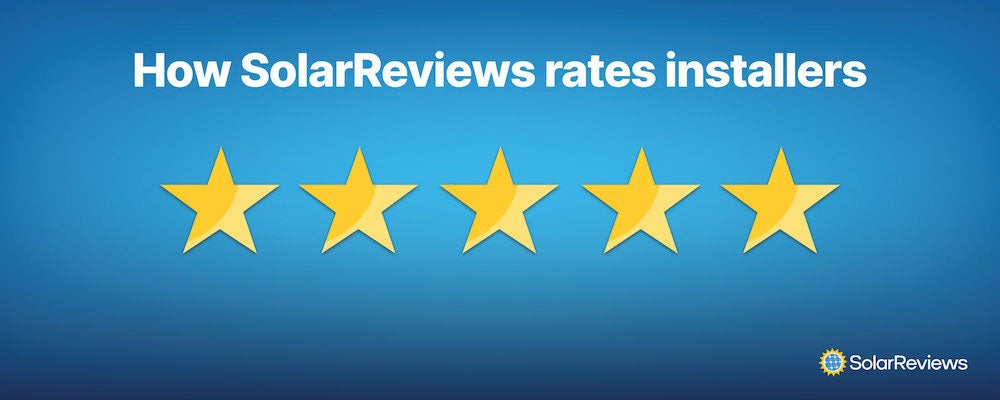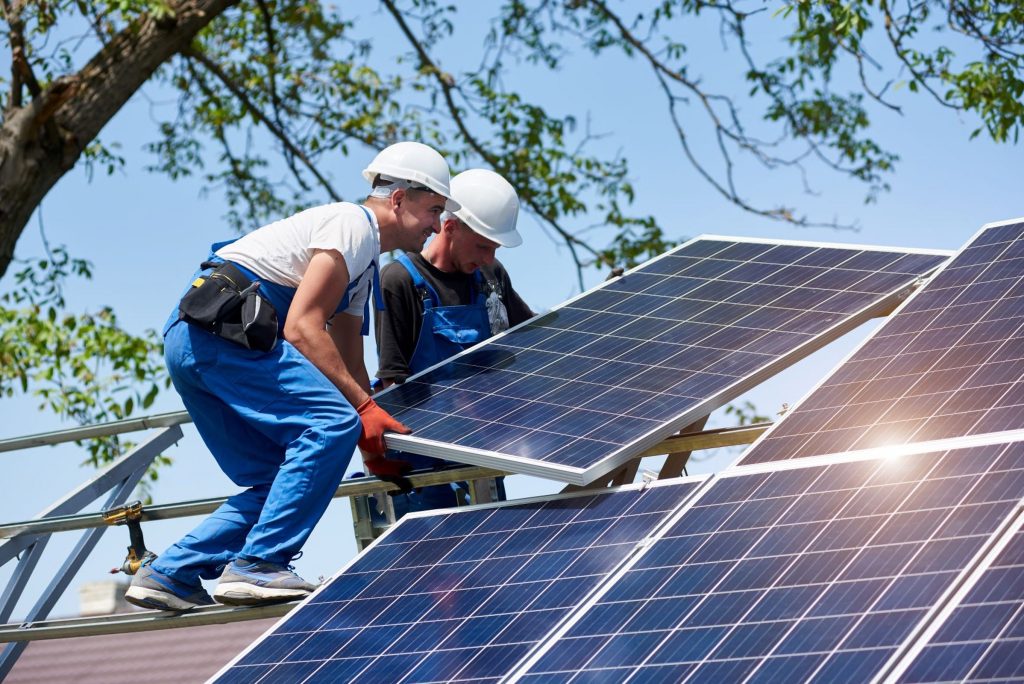In the United States, the demand for renewable energy is on the rise, and solar power has become a popular choice for homeowners looking to reduce their electricity bills and carbon footprint. Choosing the best solar installer for your home is a critical decision that can impact the efficiency, durability, and overall value of your solar system. This article will guide you through the process of selecting a reliable and reputable solar installer.
Why Solar Installers Matter
Solar installers are responsible for designing, installing, and maintaining your solar energy system. A quality installer ensures that your system is installed correctly, meets all local regulations, and performs efficiently over its lifespan. The right installer can also help you navigate the complex landscape of incentives, financing options, and warranties.
Key Factors to Consider When Choosing a Solar Installer
-
Check for Proper Credentials & Certifications
-
NABCEP & NYSERDA Recognition: Reputable solar installers hold certifications from organizations like NABCEP (North American Board of Certified Energy Practitioners)—the gold standard in the solar industry. NABCEP-certified installers meet strict safety, design, and performance standards.
-
Local Licensing & Insurance: An installer should hold all required state and county licenses, plus general liability and workers’ compensation insurance. They should also be able to easily navigate your municipality’s permitting process—especially critical in areas with varied codes and requirements.
-
Read Reviews & Ask for References
-
Online Reviews: Start with Google, Yelp, or the Better Business Bureau. Look beyond star ratings—read what people say about communication, quality, cleanup, and long-term performance.
-
Ask for References: A reputable installer should be willing to connect you with past customers. Ask about their experience during installation, and how the company handled any post-installation issues.
-
Evaluate Warranties & Support
-
Equipment Warranties: Top-tier panels typically offer 25-year performance warranties, guaranteeing 80–90% of rated output at the end of the term. Inverters usually come with 10–15 year coverage, and extended warranties may be available.
-
Workmanship Warranty: Just as important as product warranties, a workmanship warranty covers issues caused during installation—like leaks, miswiring, or damage.
-
Compare Financing & Incentive Support
-
Incentive Expertise: An experienced solar installer should help you apply for every available incentive—from the 30% Federal Solar Tax Credit to state-specific rebates, sales tax exemptions, and property tax abatements.
-
Financing Options: Solar doesn’t have to mean a huge upfront cost. Good installers offer a range of financing, including low-interest loans, zero-down programs, leases, and PPAs (Power Purchase Agreements). Transparency is key—avoid hidden fees or vague terms.
-
Look at the Process & Timeline
-
Site Visit & Custom Design: Quality installers don’t guess—they analyze. A proper site visit should include roof inspection, shading analysis, load evaluation, and a proposal with monthly production estimates.
- Permitting & Interconnection: The permitting process can be complex, especially in states like New York. An experienced team will handle this for you, including paperwork for HOAs, towns, and utility companies.
- System Monitoring & Ongoing Support: After install, your provider should show you how to monitor system performance via an app or web portal—and stay responsive if anything goes wrong.
Red Flags to Watch Out For
- Door-to-Door Sales: Legitimate solar companies don’t need to go door-to-door. High-pressure sales tactics, claims of “limited time offers,” or pushy salespeople are major warning signs.
- Demands Full Payment Upfront: Never pay the full amount before installation is complete and approved. Legitimate installers typically require only a small deposit (10-20%) with the balance due upon completion and utility approval.
- No Local Office or Phone: Companies with only cell phone numbers, P.O. boxes, or out-of-state addresses often disappear when problems arise. Insist on a local office and landline phone number you can visit or call.
- Pressures You to Sign Immediately: Claims like “this price is only good today” or refusing to let you review contracts overnight are scam tactics. Legitimate installers give you time to review proposals and make informed decisions.
- Too-Good-to-Be-True Pricing: Quotes significantly below market rate often hide poor-quality equipment, installation shortcuts, or hidden fees. If the price seems too good to be true, it probably is.
Frequently Asked Questions
- Should I choose a local solar company over a national chain?
-
In most cases, yes. Local companies know your town’s codes, weather patterns, and utility requirements—leading to faster installs and better service.
-
How many quotes should I get before choosing?
-
Aim for at least two or three. Compare proposals on equipment quality, pricing, warranties, and responsiveness—not just the bottom line.
-
Should I replace my roof first?
-
If your roof has fewer than 5–10 years of life left, it’s worth replacing now to avoid having to remove panels later.
-
How do I verify an installer’s certifications?
- Check the official NABCEP directory and NYSERDA’s qualified contractor list to confirm credentials.
Why GreenLogic Checks Every Box
- Certified & Local Experts: With 20+ years on Long Island, GreenLogic has elite certifications and thousands of successful installs.
- High-Performance Equipment & Warranties: We install powerful, proven systems—backed by 25-year performance guarantees and exceptional workmanship coverage.
- Transparent Financing & Full Incentive Guidance: No vague terms. No guesswork. Just clear numbers, complete rebates, and smart savings.
- Start-to-Finish Project Management: From your first site assessment to the final inspection—we handle the details so you can focus on the benefits.
Conclusion
Choosing the best solar installer for your home is a crucial step in transitioning to renewable energy. By following the steps outlined in this guide, you can ensure that you select a reputable, knowledgeable, and trustworthy installer who will provide you with a high-quality solar system that meets your needs and budget. Whether you’re in New York or another part of the United States, taking the time to research and compare your options will help you make an informed decision that lasts for years to come.




Meta Title: US Trending News: How to Choose the Best Solar Installer
Meta Description: Learn how to choose the best solar installer for your home with our expert guide. Find top tips and red flags to avoid scams.
Author: John Doe
Title/Role: Renewable Energy Consultant
Credentials: John has over 15 years of experience in the solar industry, specializing in residential and commercial solar installations. He has worked with leading solar companies across the United States and is passionate about helping homeowners transition to clean energy.
Profile Link: [Link to John Doe’s Profile]
Sources:
1. NABCEP Certification
2. NYSERDA Qualified Contractors
3. Better Business Bureau
Internal Links:
1. Learn More About Solar Financing
2. Explore Our Solar Installation Services
3. Read Customer Reviews
Featured Snippet:
Choosing the best solar installer involves checking credentials, reading reviews, evaluating warranties, comparing financing options, and understanding the installation process. Avoid red flags like door-to-door sales, upfront payment demands, and too-good-to-be-true pricing.
Call to Action:
Stay updated with the latest news and insights on solar energy. Explore today’s headlines and make an informed decision for your home.











More Stories
How to Claim Your Joy in League of Legends: A Step-by-Step Guide
What is WSET? A Comprehensive Guide to Wine Education
How Will VA Compensation Be Affected by a Government Shutdown?